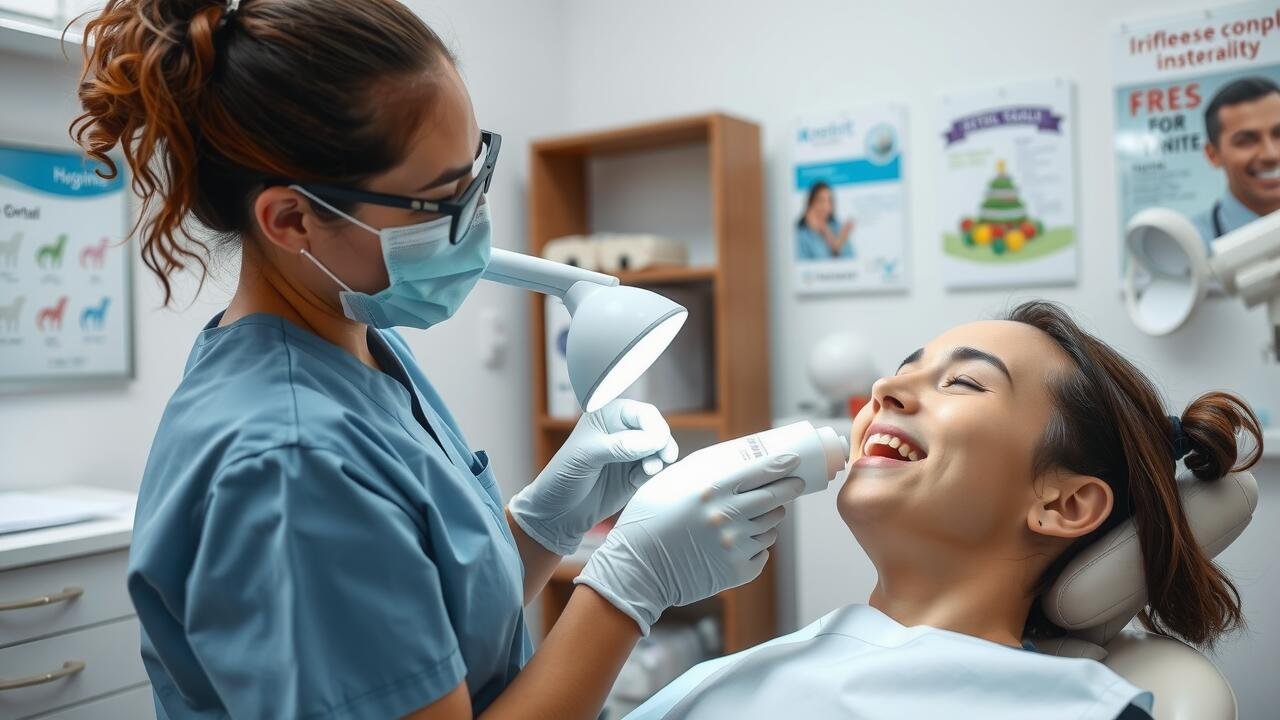
Maintaining Whitened Teeth
Maintaining whiter teeth can be achieved through simple lifestyle changes and good oral hygiene practices. After using any whitening treatment, it is essential to avoid foods and beverages that are known to cause staining, such as coffee, tea, and red wine. Regularly visiting a dentist for professional cleanings can also help keep teeth looking bright. Many people search for “Teeth Whitening near me” to find nearby options that can enhance their smile and maintain the results of at-home treatments.
Incorporating a good dental care routine plays a crucial role in preserving whiteness. Brushing and flossing at least twice a day can remove plaque and surface stains. Additionally, rinsing with water after consuming staining foods can be beneficial. Some may also consider using whitening toothpaste, which can aid in maintaining brightness between professional treatments. Creating these habits can contribute significantly to long-lasting whitened teeth.
Best Practices for Long-Lasting Results
To maintain the results of your teeth whitening efforts, consistency in oral care is essential. Regular brushing and flossing help remove surface stains and prevent plaque buildup. Incorporating whitening toothpaste into your routine can provide an additional boost, enhancing brightness and prolonging the effects. It’s also beneficial to limit foods and beverages known for staining, such as coffee, red wine, and berries, while substituting them with water whenever possible.
Regular dental check-ups contribute significantly to the longevity of your whitening. Professional cleanings can help remove any stubborn stains that daily care might miss. Consulting with your dentist about local options for “Teeth Whitening near me” can provide insight into treatments that suit your lifestyle and needs, ensuring your smile stays radiant for the long run.
The Role of Oral Hygiene in Teeth Whiteness
Oral hygiene plays a crucial role in maintaining the natural color of teeth and enhancing the effectiveness of any whitening treatments. Regular brushing and flossing help remove food particles and plaque, which can contribute to discoloration over time. When teeth are well cared for, they respond better to whitening products, ensuring a brighter smile that lasts longer. Incorporating rinsing with mouthwash can also benefit overall oral health, adding an extra layer of protection against stains.
For those seeking professional enhancements, finding a reputable service through searches like “Teeth Whitening near me” can lead to effective treatments that complement good oral hygiene practices. These professional options often offer more potent whitening agents than over-the-counter products, targeting deeper stains and providing more noticeable results. However, keeping up with daily brushing and flossing remains essential to sustain the brightness achieved through these treatments.
Importance of Regular Brushing and Flossing
Regular brushing and flossing are fundamental practices for anyone seeking to maintain a bright, white smile. Brushing twice a day helps remove surface stains and food particles that can dull tooth enamel over time. Flossing complements brushing by dislodging debris trapped between teeth, which can lead to discoloration if not addressed. Consistent oral hygiene minimizes the need for professional whitening treatments and can prolong the effects of any bleaching done.
For those exploring options like “Teeth Whitening near me,” maintaining your oral hygiene routine is vital. Many whitening products can exacerbate sensitivity or lead to uneven results if plaque buildup and tartar are present. Proper brushing and flossing create a cleaner canvas for whitening treatments, ensuring that you achieve a more uniform and brighter outcome without unnecessary risks.
Potential Risks of Whitening Treatments
Whitening treatments can lead to various risks that users should be aware of before starting. Sensitivity is one of the most common side effects, often resulting from the bleaching agents used in various products. This discomfort can sometimes persist even after treatment has concluded. Additionally, overuse of whitening products can lead to enamel erosion, compromising the overall health of your teeth.
Some individuals may also experience gum irritation due to contact with whitening agents. It is crucial to follow product instructions carefully and consult with a dental professional if you have concerns. Searching for “Teeth Whitening near me” can help identify safe and reputable services. Taking these precautions will ensure a safer approach to achieving whiter teeth while minimizing potential risks.
Understanding Sensitivity and Other Side Effects
Teeth whitening treatments can lead to increased tooth sensitivity in some individuals. This sensitivity typically occurs due to the bleaching agents in whitening products, which may irritate the nerves within the teeth. The discomfort can vary in intensity, ranging from mild to more severe sensations. Individuals opting for professional treatments should discuss their history of sensitivity with their dentist to find methods that minimize discomfort.
Aside from sensitivity, other side effects may include gum irritation or uneven whitening results. Some over-the-counter products might cause uneven application, leading to patchy discoloration. It’s essential to follow directions carefully and consult a dental professional when considering solutions like “Teeth Whitening near me,” as they can offer personalized advice and alternative treatments that may be gentler on your teeth and gums.
FAQS
What are some inexpensive methods to whiten teeth at home?
Some inexpensive methods include using baking soda mixed with water, hydrogen peroxide as a mouth rinse, or using whitening strips that are on sale. Additionally, consuming crunchy fruits and vegetables can help remove surface stains naturally.
How can I maintain whitened teeth without spending a lot?
To maintain whitened teeth affordably, practice good oral hygiene by brushing and flossing regularly, avoid foods and drinks that stain (like coffee and red wine), and consider using a whitening toothpaste.
Are there any risks associated with cheap teeth whitening methods?
Yes, some cheap methods can cause tooth sensitivity or gum irritation. It’s important to follow instructions carefully and not overuse whitening treatments, as they can damage enamel if used excessively.
How often should I whiten my teeth using home remedies?
It’s generally recommended to limit whitening treatments to no more than once a week for home remedies to avoid enamel damage and sensitivity. Always pay attention to how your teeth and gums react.
Can I achieve professional whitening results with cheap alternatives?
While inexpensive methods can lighten stains and improve brightness, they may not achieve the same level of whiteness as professional treatments. For significant whitening, a professional treatment may still be necessary.


